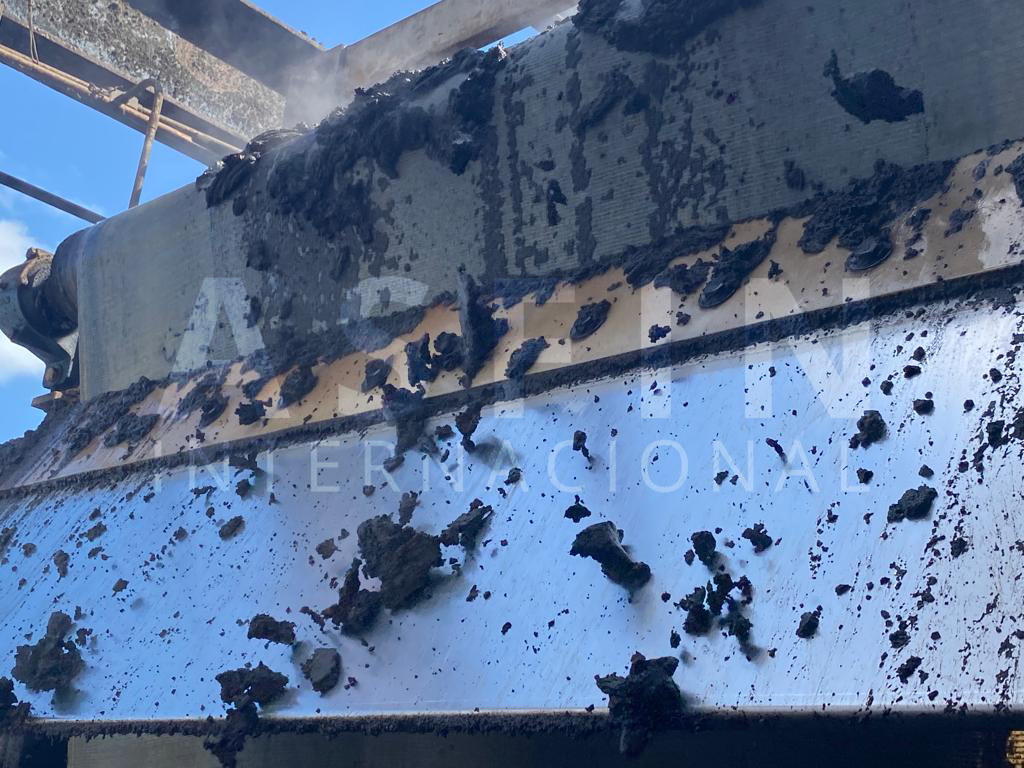Problem
The sugar cane mill had high sucrose losses in the sludge (cachaza), starting the harvest with values of 0.127 % with 3.50 % Pol.
The flocculant preparation was observed to be correct at a concentration of 0.10 %. The dosage of the polymer was 12 ppm cane base, which was a high value, not to mention that the desired result was not obtained.
The flocculant used was of anionic character of super high molecular weight, being the same as the one used for juice clarification.
The flocculant preparation was observed to be correct at a concentration of 0.10 %. The dosage of the polymer was 12 ppm cane base, which was a high value, not to mention that the desired result was not obtained.
The flocculant used was of anionic character of super high molecular weight, being the same as the one used for juice clarification.
Solutions and results
Our proposal consisted in suggesting our ASFLOC™ 034 MPM to decrease the molecular weight from super high to medium.
This allowed the flocs formed to be smaller in size and, therefore, to present more pathways for the removal of liquid from the cake through the filter media.
The corresponding test was carried out in the plant, observing the formation of medium-sized flocs in the cachaza mingler. The operation of the band filter improved considerably, reaching a final moisture in the cachaza cake of 68%. This was with the sprinklers at their maximum capacity.
Regarding the analysis of sucrose in the sludge (cachaza), the results obtained were 2.0% Pol, reducing losses to 0.052%.
The dosage of ASFLOC™ 034 MPM was optimized to 8 ppm, 70% below the reagent previously used.
The customer approved the switch to our ASFLOC™ 034 MPM flocculant and its continuous consumption.
This allowed the flocs formed to be smaller in size and, therefore, to present more pathways for the removal of liquid from the cake through the filter media.
The corresponding test was carried out in the plant, observing the formation of medium-sized flocs in the cachaza mingler. The operation of the band filter improved considerably, reaching a final moisture in the cachaza cake of 68%. This was with the sprinklers at their maximum capacity.
Regarding the analysis of sucrose in the sludge (cachaza), the results obtained were 2.0% Pol, reducing losses to 0.052%.
The dosage of ASFLOC™ 034 MPM was optimized to 8 ppm, 70% below the reagent previously used.
The customer approved the switch to our ASFLOC™ 034 MPM flocculant and its continuous consumption.
Benefits
- Excellent sludge (cachaza) filtration
- Maximum moisture content of 70 % in sludge (cachaza)
- Cachaza sucrose with values of 1.5 to 2.0 % Pol
- Up to 50 % reduction of losses in cachaza and maximum sucrose recovery
- 30 % less polymer consumption and thus the same reduction in the number of preparations
- Considerable cost savings

